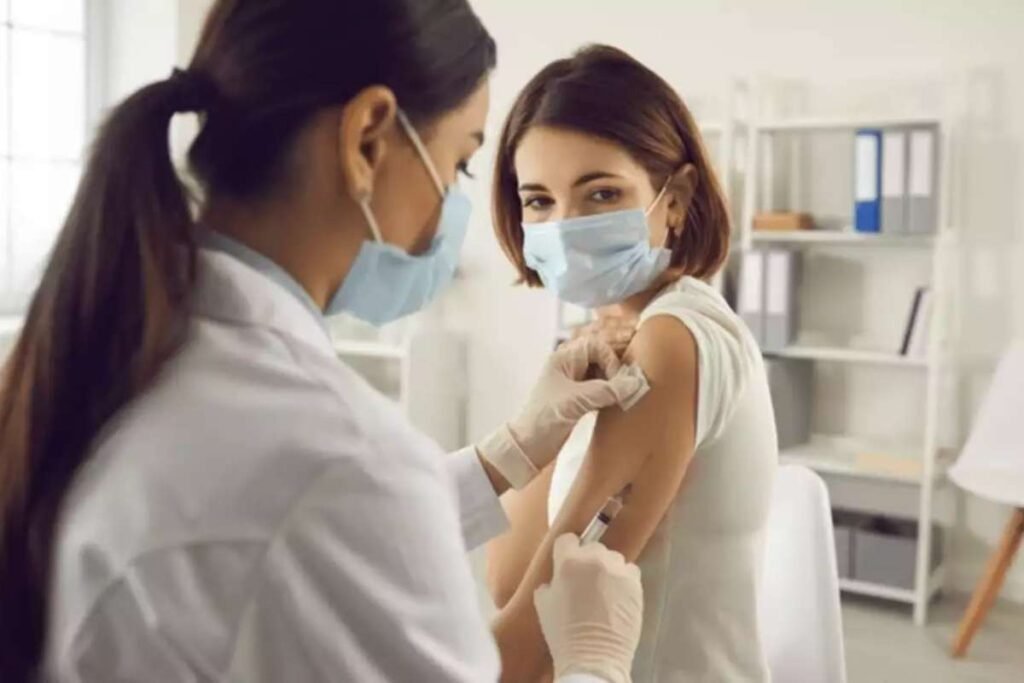A twice-yearly shot, hailed as the closest the world has come to a HIV vaccine could revolutionize AIDS prevention. The shot was found to be 100% effective in preventing HIV infections in a study involving women and nearly as effective in men, according to recently published results.
The drug, called lenacapavir, is sold under the brand name Sunlenca and is already approved for HIV vaccine in countries like the United States, Canada, and several in Europe. The manufacturer plans to seek authorization for its use in HIV prevention soon. However, questions remain about whether this groundbreaking prevention method will be accessible to everyone who needs it, particularly in underserved regions.
A Revolutionary Prevention Method of HIV vaccine
Lenacapavir offers a new hope for HIV prevention. Unlike daily pills, bi-monthly shots, condoms, or vaginal rings, the twice-yearly injection is particularly beneficial for marginalized groups, including gay men, sex workers, and young women. These groups often face social stigma and lack access to consistent healthcare.
This was the case for Luis Ruvalcaba, a 32-year-old man from Guadalajara, Mexico, who participated in a lenacapavir study. Afraid to ask for daily prevention pills due to fear of discrimination as a gay man, he described the shot as a life-changing solution. Study participants like Ruvalcaba will continue receiving the shot for at least another year.
For many in Latin America, however, access remains uncertain. Health officials in Mexico, for instance, have not clarified if the government will include Sunlenca in its public health system, which began offering daily HIV prevention pills in 2021. Dr. Alma Minerva Pérez, who enrolled study participants in Guadalajara, expressed hope that Mexico would adopt generic versions of the drug.
Inequities in Access
While the drugmaker has committed to providing affordable, generic versions of lenacapavir in 120 low-income countries—mostly in Africa, Southeast Asia, and the Caribbean—it has excluded nearly all of Latin America. This decision has sparked criticism, especially as HIV rates in the region, though lower than in Africa, are steadily rising.
Winnie Byanyima, executive director of UNAIDS, acknowledged the drug’s transformative potential but emphasized the importance of ensuring access in all at-risk regions. Countries like Brazil, Peru, and Argentina, which participated in lenacapavir research, have also been excluded from the generics deal. Advocacy groups across Latin America have urged the drugmaker to reconsider, pointing out the alarming inequities in access to life-saving prevention tools.
Byanyima described denying these countries access as unacceptable. She argued that the global fight against AIDS hinges on ensuring that lenacapavir is widely available, particularly in areas where new infections are increasing.
Rising Global Demand and Costs
In wealthier nations such as the United States, Norway, and France, Sunlenca costs over $40,000 per year. Experts believe generic production could bring the cost down to as little as $40 per treatment, making it more accessible to the 10 million people who could benefit from it globally.
Other drugmakers face similar criticisms. Viiv Healthcare, which produces the HIV prevention shot Apretude, also excluded most of Latin America from its generics deal. Apretude, given bi-monthly, is about 80–90% effective in preventing HIV infections but costs $1,500 annually in middle-income countries—far beyond what most can afford.
Calls for Compulsory Licenses
In light of the disparities, activists and health experts are urging governments to issue compulsory licenses, a legal mechanism that suspends patents during health crises. Brazil and Mexico, among other countries, have used this strategy in the past to make HIV vaccine affordable. Earlier this year, Colombia issued its first-ever compulsory license for Tivicay, a key HIV drug, bypassing the manufacturer’s patent.
Dr. Salim Abdool Karim, an AIDS expert from South Africa’s University of KwaZulu-Natal, praised lenacapavir as an unprecedented breakthrough in HIV vaccine . However, he stressed that the main challenge now is ensuring that everyone who needs the drug can access it.
A Historic Crossroads
UNAIDS reported that AIDS-related deaths in 2022 dropped to their lowest levels since peaking in 2004, with an estimated 630,000 deaths. This milestone suggests that the world is at a historic turning point in the fight against AIDS.
As countries and advocacy groups push for equitable access to new prevention tools like lenacapavir, the question remains whether the global community can rise to the challenge of ending the epidemic for good.









